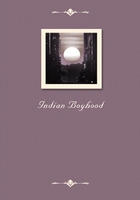
第5章
"Some day Ohiyesa will be old enough to know the secrets of medicine;then I will tell him all.
But if you should grow up to be a bad man,I must withhold these treasures from you and give them to your brother,for a medicine man must be a good and wise man.I hope Ohiyesa will be a great medicine man when he grows up.To be a great warrior is a noble ambition;but to be a mighty medicine man is a nobler!"She said these things so thoughtfully and im-pressively that I cannot but feel and remember them even to this day.
Our native women gathered all the wild rice,roots,berries and fruits which formed an impor-tant part of our food.This was distinctively a woman's work.Uncheedah (grandmother)under-stood these matters perfectly,and it became a kind of instinct with her to know just where to look for each edible variety and at what season of the year.This sort of labor gave the Indian women every opportunity to observe and study Nature after their fashion;and in this Uncheedah was more acute than most of the men.The abilities of her boys were not all inherited from their father;indeed,the stronger family traits came obviously from her.She was a leader among the native women,and they came to her,not only for medical aid,but for advice in all their affairs.
In bravery she equaled any of the men.This trait,together with her ingenuity and alertness of mind,more than once saved her and her people from destruction.Once,when we were roaming over a region occupied by other tribes,and on a day when most of the men were out upon the hunt,a party of hostile Indians suddenly ap-peared.Although there were a few men left at home,they were taken by surprise at first and scarcely knew what to do,when this woman came forward and advanced alone to meet our foes.
She had gone some distance when some of the men followed her.She met the strangers and offered her hand to them.They accepted her friendly greeting;and as a result of her brave act we were left unmolested and at peace.
Another story of her was related to me by my father.My grandfather,who was a noted hunter,often wandered away from his band in search of game.In this instance he had with him only his own family of three boys and his wife.One evening,when he returned from the chase,he found to his surprise that she had built a stockade around her teepee.
She had discovered the danger-sign in a single foot-print,which she saw at a glance was not that of her husband,and she was also convinced that it was not the foot-print of a Sioux,from the shape of the moccasin.This ability to recognize foot-prints is general among the Indians,but more marked in certain individuals.
This courageous woman had driven away a party of five Ojibway warriors.They approached the lodge cautiously,but her dog gave timely warning,and she poured into them from behind her defences the contents of a double-barrelled gun,with such good effect that the astonished braves thought it wise to retreat.
I was not more than five or six years old when the Indian soldiers came one day and destroyed our large buffalo-skin teepee.It was charged that my uncle had hunted alone a large herd of buffaloes.
This was not exactly true.He had unfortunately frightened a large herd while shooting a deer in the edge of the woods.However,it was custom-ary to punish such an act severely,even though the offense was accidental.
When we were attacked by the police,I was play-ing in the teepee,and the only other person at home was Uncheedah.I had not noticed their approach,and when the war-cry was given by thirty or forty Indians with strong lungs,I thought my little world was coming to an end.Instantly innumerable knives and tomahawks penetrated our frail home,while bullets went through the poles and tent-fastenings up above our heads.
I hardly know what I did,but I imagine it was just what any other little fellow would have done under like circumstances.My first clear realiza-tion of the situation was when Uncheedah had a dispute with the leader,claiming that the matter had not been properly investigated,and that none of the policemen had attained to a reputation in war which would justify them in touching her son's teepee.But alas!our poor dwelling was already an unrecognizable ruin;even the poles were broken into splinters.
The Indian women,after reaching middle age,are usually heavy and lack agility,but my grand-mother was in this also an exception.She was fully sixty when I was born;and when I was seven years old she swam across a swift and wide stream,carrying me on her back,because she did not wish to expose me to accident in one of the clumsy round boats of bull-hide which were rigged up to cross the rivers which impeded our way,especially in the springtime.Her strength and endurance were remarkable.Even after she had attained the age of eighty-two,she one day walked twenty-five miles without appearing much fa-tigued.
I marvel now at the purity and elevated senti-ment possessed by this woman,when I consider the customs and habits of her people at the time.
When her husband died she was still comparatively a young woman--still active,clever and industrious.She was descended from a haughty chieftain of the "Dwellers among the Leaves."Although women of her age and position were held to be eligible to re-marriage,and she had several persistent suitors who were men of her own age and chiefs,yet she preferred to cherish in solitude the memory of her husband.
I was very small when my uncle brought home two Ojibway young women.In the fight in which they were captured,none of the Sioux war party had been killed;therefore they were sympathized with and tenderly treated by the Sioux women.
They were apparently happy,although of course they felt deeply the losses sustained at the time of their capture,and they did not fail to show their appreciation of the kindnesses received at our hands.